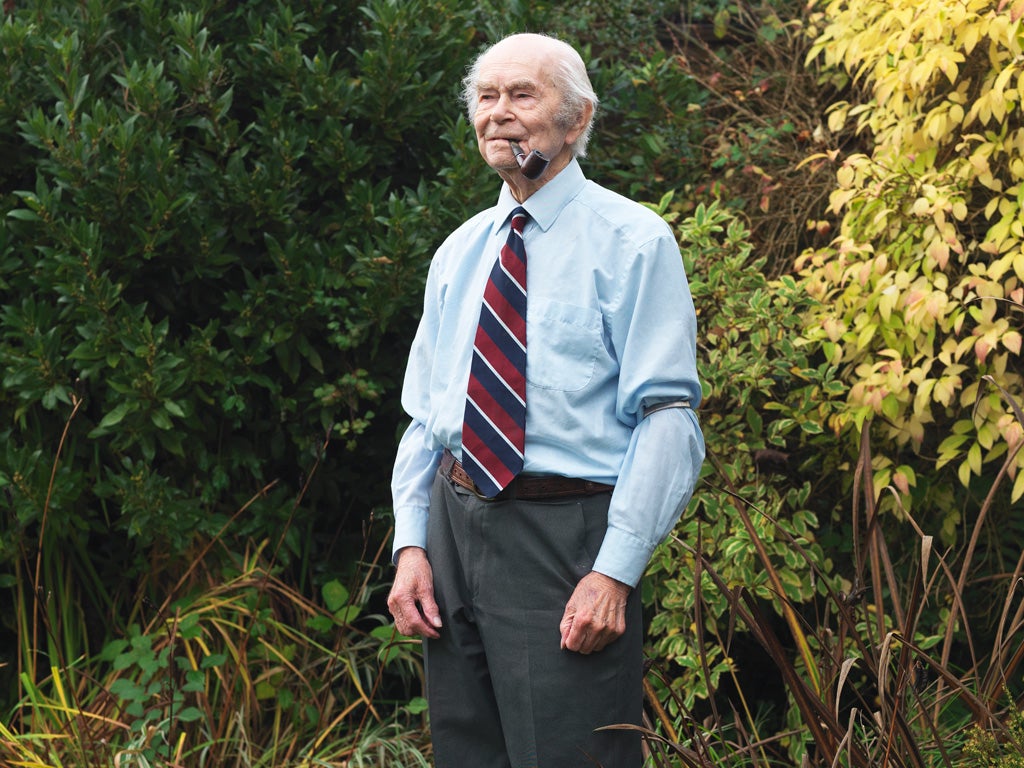One of the last Bomber Boys pays tribute to comrades
Ron Leverington, 91, is pleased that crews will be given a memorial at last

They were known as the "Bomber Boys". Barely out of their teens, they flew out of British air bases during the Second World War, knowing that their life expectancy was little more than two weeks. Ron Leverington, 91, is one of the few remaining. He was sent at the age of 23 to join the ranks of Britain's Bomber Command crews as an air gunner, and the events of 1944 are still crystal-clear in his mind.
His Halifax bomber was shot down, and he spent six weeks hiding in a cave near Lyons with members of the French Resistance. Finally, he was captured by the Gestapo and sent to Buchenwald concentration camp on what is thought to have been the last train to leave Paris before its liberation.
Almost 70 years later, and in the week the country remembers those who died in the line of duty, there is something Mr Leverington is particularly looking forward to. Next year, a memorial will be erected in Piccadilly, central London, for the 55,573 aircrew who died in the RAF's Bomber Command operations – around half of those deployed. Not one has received a medal, and Winston Churchill himself made no mention of Bomber Command when he highlighted the contribution of the services in winning the war.
Bomber Command made up only 7 per cent of the forces fielded by Britain and its empire, yet it suffered the highest death rate of any section of the military. Most of those who lost their lives were under 25, and many of them were teenagers. But as historians raised questions about the morality of Britain's "area" bombing, politicians distanced themselves from the policy, which led to the deaths of tens of thousands of German civilians.
Mr Leverington and four other Bomber Boys will tell their stories for the first time in a documentary to be aired on Channel 5 this week, on the eve of Remembrance Day. For the former airman – who at one point thought he would have to stand witness in the Nuremberg trials on account of the atrocities he witnessed inside Buchenwald – it will be a chance to tell stories he has kept to himself for a long time.
"Seven of us were sent out from Pocklington, Yorkshire, on 28 June 1944, and three were killed instantly when our plane was shot down," he told The Independent on Sunday from his home in Howe, near Southampton. "The Gestapo put us in a cattle truck with 90 to 100 other people and we were on that train for five days and five nights. Before even arriving at the camp, a young lad, about 12 years old, tried to look out of the barbed 6in window in the truck. Soldiers pointed [a] rifle at him and shot his fingers off. I saw lots of things at Buchenwald; they were awful.
"I'm pleased we're getting a memorial for the Bomber Command crews. It will mean so much to [the families of] all those blokes who died."
More than 100 MPs signed the Labour MP Austin Mitchell's Early Day Motion last year requesting that Bomber Command crew members be awarded a military medal, even if the award were posthumous. The Tory MP Nicholas Soames, Churchill's grandson, said it was a "great anxiety" that the crews were not properly recognised at the end of the war.
The Ministry of Defence said the Government was committed to a "fresh review of the rules governing the award of military medals", and added that the scope of the review was expected to be announced shortly.
Join our commenting forum
Join thought-provoking conversations, follow other Independent readers and see their replies
Comments